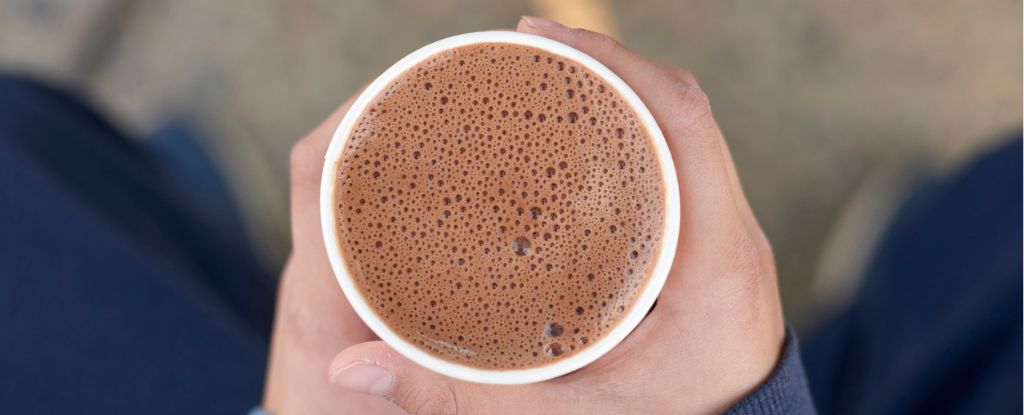Foods that make you feel good in times of stress are often not good for you. But in a sweet turn of events, scientists have found that pairing a high-fat meal with a certain kind of cocoa could counteract some troubling health downsides.
Episodes of high stress, even short ones, are known to slightly and temporarily impair the function of the body’s arteries. While eating fatty foods might feel good in the moment, studies suggest saturated fats can exacerbate stress on the cardiovascular system, prolonging recovery.
The good news is that there may be an antidote, and surprisingly enough, it can be served as dessert following a high-fat meal.
In a randomized, double-blinded trial of healthy adults, researchers at the University of Birmingham have shown that drinking cocoa powder high in antioxidants can potentially alleviate declines in vascular function associated with stress and fatty foods.
The experiment included 23 young- to middle-aged adults, who ate two butter croissants with salted butter and cheddar cheese along with a glass of whole milk.
In addition, roughly half the group drank a cocoa beverage with high levels of flavanols, which are antioxidants found in plant-based foods like berries, tea, apples, pears, and some nuts. The other half drank a cocoa beverage with low levels of flavanols.
Participants then undertook a universally stressful event: a mental math test.
At a second session, the participants repeated the experiment, consuming the low-flavanol cocoa beverage if they were given the high-flavanol version previously, and vice versa.
Following the fatty meal and stressful event, researchers found increases in the diameter of both the brachial and the carotid arteries of participants. The brachial artery carries oxygenated blood to the body, whereas the carotid artery carries oxygenated blood to the brain.
In particular, the brachial artery took a while to recover in those who drank low-flavanol cocoa. Up to 90 minutes after the fatty meal and stressful event, this artery continued to show an impaired ability to respond to changes in blood flow.
While slight, this level of impairment has been associated with a 9 to 13 percent increased risk of future cardiovascular events.
But here’s the good news: Those who drank high-flavanol cocoa were somewhat protected from those impairments. The way their brachial artery responded to blood flow changes was improved compared to the low-flavanol group.
“To our knowledge, this is the first study to show that high-flavanol cocoa can attenuate the stress-induced decline in brachial flow-mediated dilatation following a high-fat meal,” write the authors, led by physiologist Rosalind Baynham.
Today, most people eating a western diet do not consume the recommended amount of daily flavanols, which is roughly equivalent to two cups of black or green tea. Some limited evidence suggests these bioactive compounds can improve cardiovascular health and cognitive function.
More research is needed, but the current trial supports that hypothesis, at least for cardiovascular health. The high dose of flavanols used in the experiment from Birmingham is equivalent to two cups of green tea, 5.5 tablespoons of unprocessed cocoa, or 300 grams (10.6 ounces) of berries.
“For those who tend to reach for a treat when stressed or depend on convenient food because they work high-pressure jobs or are time-poor, incorporating some of these small changes could make a real difference,” says biological psychologist Jet Veldhuijzen van Zanten from Birmingham.
Interestingly, the authors of the study did not find that high-flavanol cocoa impacted blood flow or oxygenation of the brain following stress. Future experiments with larger sample sizes could help clarify that result, especially as previous studies on flavanols have hinted at cognitive benefits.
“This research shows that drinking or eating a food high in flavanols can be used as a strategy to mitigate some of the impact of poorer food choices on the vascular system,” says nutritional scientist Catarina Rendeiro.
“This can help us make more informed decisions about what we eat and drink during stressful periods.”
The study was published in Food and Function.





